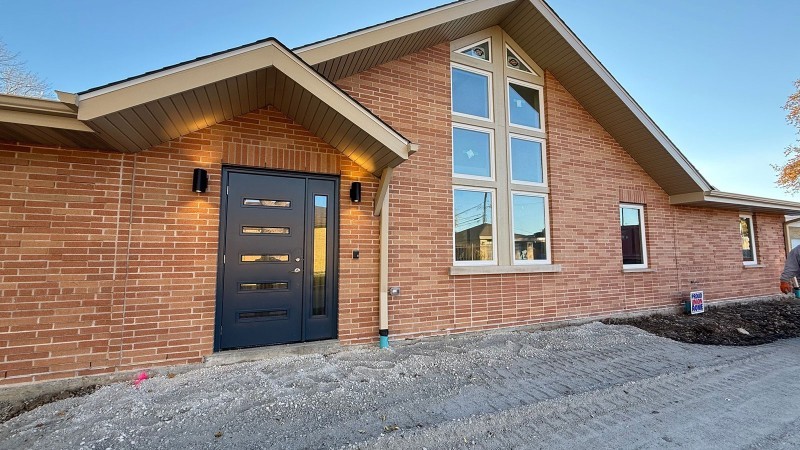Aging with proper support is an increasingly important concern for everyone, especially people with intellectual or developmental disabilities (IDDs). For many, the ability to live in a familiar environment tailored to their needs as they age in place is essential for good physical and mental health. But family members aren’t always capable of providing necessary support.
ADA-compliant group homes are a popular solution, offering stability, support and a sense of community. Here’s a closer look at why group homes are beneficial for seniors with IDDs and how to choose the right home for aging in place.
What is a Group Home?
Group homes, also known as residential facilities, are communal homes for adults with IDDs. Each typically houses four or more occupants, and these residences may specialize in care for a specific demographic — such as senior citizens — with particular types of health concerns.
Benefits of Group Homes for Seniors with IDDs
Group homes provide a unique blend of community living and personalized care, making them ideal for aging adults with developmental disabilities. Some key benefits include:
- Access to professional care. Group homes are staffed with trained professionals who understand the unique needs of individuals with IDDs. These caregivers provide essential services such as medication management, meal preparation and assistance with daily living tasks.
- Foster independence. While offering support, group homes encourage residents to maintain as much independence as possible, promoting dignity and self-reliance.
- Build community. Living with peers promotes social connections and combats loneliness, which is vital for mental and emotional well-being.
- Accessibility. Group homes are designed to be ADA compliant, accommodating mobility challenges and other physical needs common in aging populations. This helps to ensure an environment that’s safe and easy to navigate.
- Continuity of care. Group homes can adapt services as residents’ needs change, offering a stable living situation even as health issues or disabilities evolve. Some homes are also equipped with virtual telehealth services, which give people with disabilities the freedom to receive additional support without leaving their residence.
- Focus on quality of life. Group homes emphasize enriching activities and a high quality of life, providing residents with opportunities to engage in hobbies, events and community programs.
How to Choose the Right Group Home
Selecting the right group home for your loved one involves careful preparation from caregivers. You’ll want to look for licensed facilities with experienced staff and a strong focus on community inclusion. Here are some other essential steps to ensure a smooth process.
Assess Long-Term Needs
Evaluate the individual’s current and future physical, emotional and social needs. These include mobility requirements, chronic health conditions and preferences for daily living. It’s best to plan for potential health changes early.
Involve the Individual
Empower the person with IDD to participate in decision-making. Their preferences regarding living arrangements, routines and care services are essential to creating a supportive environment.
Adapt the Environment
Ensure the group home is furnished with necessary accessibility features, such as grab bars, ramps and emergency alert systems. These modifications can prevent falls and promote safety.
Coordinate Financial and Legal Planning
If you need financial assistance, secure funding through Medicaid, Social Security Disability Insurance or other programs. Establish legal arrangements such as guardianships or powers of attorney to manage financial and medical decisions.
Aging in place within a group home offers a balance of independence, safety and community for people with IDDs. By understanding the benefits and taking proactive steps to prepare, families and caregivers can create a secure and enriching environment for their loved ones to age gracefully and comfortably.
Learn More about the Envision Unlimited DreamHome
Envision Unlimited is opening a state-of-the-art group home in the Auburn Gresham neighborhood that will enable seniors with disabilities to age in place and continue living a life of choice, independence and inclusion as their needs get more complex. Residents are expected to move in by March 2025. Watch how it has come to life over the past year.

Construction of the Envision Unlimited DreamHome nears completion in November 2024. Photo credit: Zernul Shackelford Jr.
Thrive in Place with Envision Unlimited
If your loved one has a disability and would like to age in place, we can help. Envision Unlimited is a full spectrum of care organization serving people with intellectual and developmental disabilities and mental illness, regardless of age, gender, background, or ability. Since 1948, we have built a legacy of evolving care delivered with empathy, every time and everywhere. Our innovative services are offered across Chicagoland and Central Illinois and include novel day programs, community living options, behavioral health services, employment programs, respite for families and foster care for children with disabilities.
Top photo: A schematic of the Envision Unlimited DreamHome.
